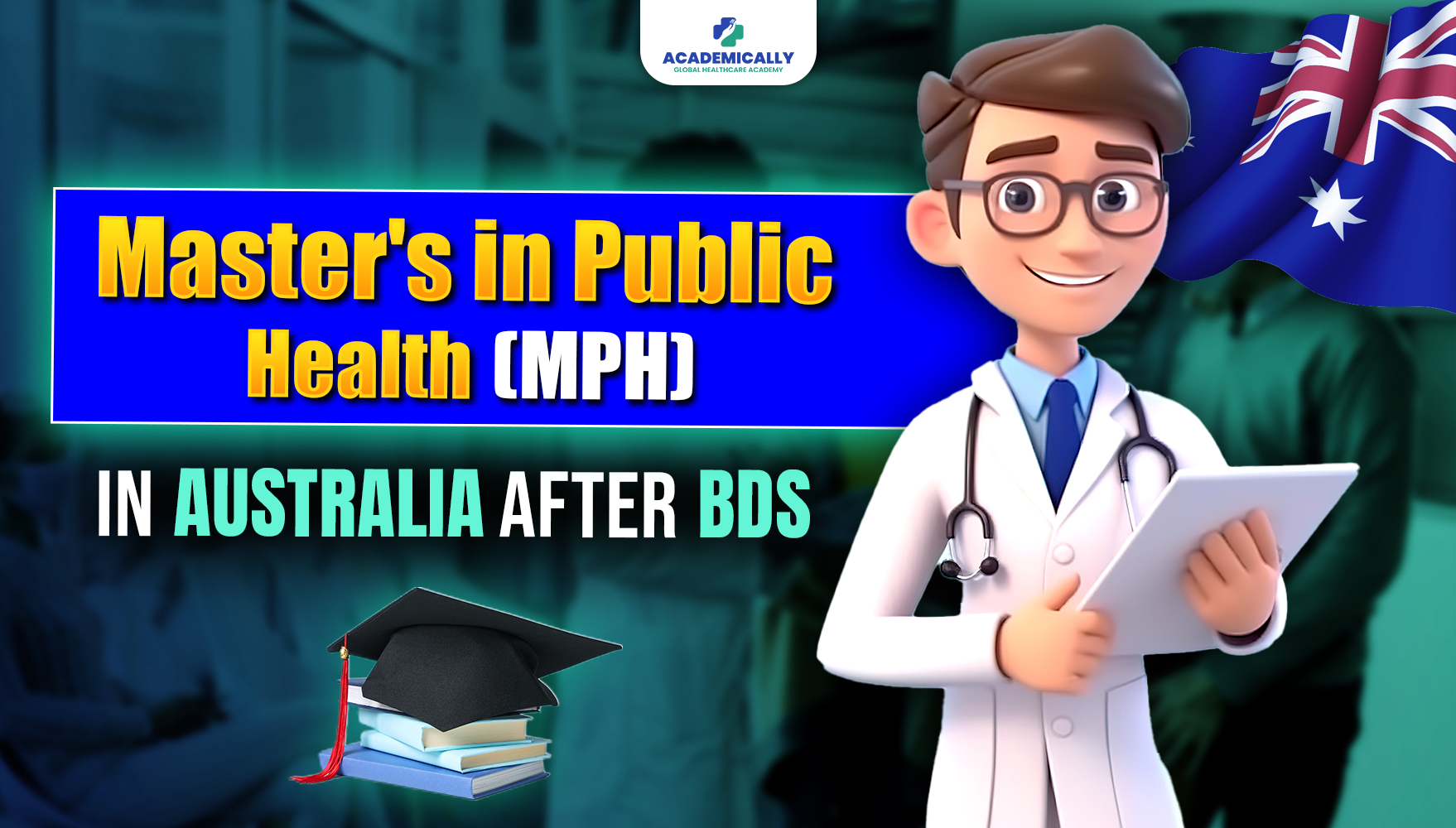Why Choose Public Health?
Before diving into the specifics, let's explore why public health might appeal to BDS graduates. While dentistry focuses primarily on oral health, public health takes a broader approach, addressing health concerns at the population level.
By studying public health, you'll gain valuable insights into epidemiology, health policy, environmental health, and social determinants of health, among other areas. This knowledge equips you to tackle health challenges on a larger scale and impact communities meaningfully.
Masters in Public Health
A Master's in Public Health (MPH) is a professional graduate degree program designed to equip individuals with the knowledge and skills needed to address public health challenges at the population level. MPH programs prepare students to analyse public health issues, develop evidence-based interventions, and advocate for policies that promote health and prevent disease within communities.
Core Components of an MPH Program:
Epidemiology: Epidemiology is a fundamental component of public health that involves the study of disease distribution and determinants in populations. MPH students learn how to analyse data, identify patterns of disease occurrence, and assess risk factors to inform public health interventions.
Biostatistics: Biostatistics involves the application of statistical methods to public health research and data analysis. MPH students acquire skills in study design, data collection, and statistical analysis, enabling them to interpret health-related data and draw meaningful conclusions.
Health Policy and Management: MPH programs cover health policy and management to prepare students for leadership roles in public health organisations and government agencies. Students learn about health systems, policy development processes, and effective strategies for managing public health programs.
Environmental Health: Environmental health explores the relationship between environmental factors and human health outcomes. MPH students study environmental pollutants, occupational hazards, and the impact of environmental policies on public health.
Social and Behavioral Sciences: MPH programs emphasise social and behavioural sciences to understand the social determinants of health and the factors influencing health behaviours within communities. Students learn how to develop interventions that address social inequalities and promote health equity.
Benefits of Pursuing Master's in Public Health (MPH) in Australia
Australia is renowned for its high-quality education system and vibrant multicultural society, making it an attractive destination for international students. Here are some reasons why pursuing an MPH in Australia after BDS could be a fulfilling choice:
Diverse Learning Environment: Australian universities welcome students worldwide, creating a diverse and inclusive learning environment. You'll have the opportunity to collaborate with peers from various cultural backgrounds, enriching your academic experience.
Expert Faculty: Australian universities boast renowned faculty members who are public health research and practice experts. You'll learn from leading professionals in the field and gain insights from their diverse experiences and perspectives.
Practical Experience: Many MPH programs in Australia offer practical components such as internships, fieldwork, and research projects. These opportunities allow you to apply theoretical knowledge in real-world settings, enhancing your skills and preparing you for a successful career in public health.
Global Perspective: Studying public health in Australia exposes you to global health issues and best practices. You'll gain a broader perspective on health challenges facing different countries and communities, preparing you to work in diverse settings worldwide.
Top Master's in Public Health (MPH) Colleges in Australia
Some of the top universities in Australia offering Master's in Public Health (MPH) programs include:
- University of Melbourne
- University of Sydney
- University of Queensland
- Monash University
- University of New South Wales (UNSW)
- University of Adelaide
- University of Western Australia
- Australian National University (ANU)
- Queensland University of Technology (QUT)
- University of Wollongong
Career Opportunities
Earning an MPH opens up various career opportunities in various sectors, including government agencies, non-profit organisations, research institutions, and healthcare facilities. As a dental professional with a background in public health, you might pursue roles such as:
- Public Health Dentist: Work in community health centres or government agencies to improve oral health outcomes in underserved populations.
- Health Policy Analyst: This position analyses healthcare policies and advocates for evidence-based strategies to promote public health and prevent oral diseases.
- Epidemiologist: Research the distribution and determinants of oral health conditions, contributing to disease prevention and control efforts.
- Health Educator: Develop educational programs to raise awareness about oral hygiene practices and promote healthy behaviours within communities.
- Government Agencies: Work in local, state, or federal health departments to develop and implement public health policies, programs, and interventions.
- Nonprofit Organisations: Join nonprofit or non-governmental organisations (NGOs) focused on public health advocacy, community health education, or international development.
- Healthcare Organisations: These are employed by hospitals, healthcare systems, or managed care organisations to manage population health initiatives, health promotion programs, or health data analysis.
- Research Institutions: You can work in research institutions, academic settings, or public health agencies to conduct epidemiological research, program evaluation, or health policy analysis.
In Summary
Transitioning from dentistry to public health through pursuing an MPH in Australia after completing your BDS degree offers a fulfilling path for those seeking to expand their horizons within the healthcare industry.
It's a journey of personal and professional growth fueled by a desire to impact the health and well-being of communities meaningfully. With a strong foundation in dentistry and a passion for public health, you'll be well-equipped to address health challenges, advocate for social change, and positively impact the well-being of communities.
So, if you're ready to expand your horizons and embark on a meaningful public health career, consider Australia your gateway to success!
Fill up this form for a free one on one counselling session.





